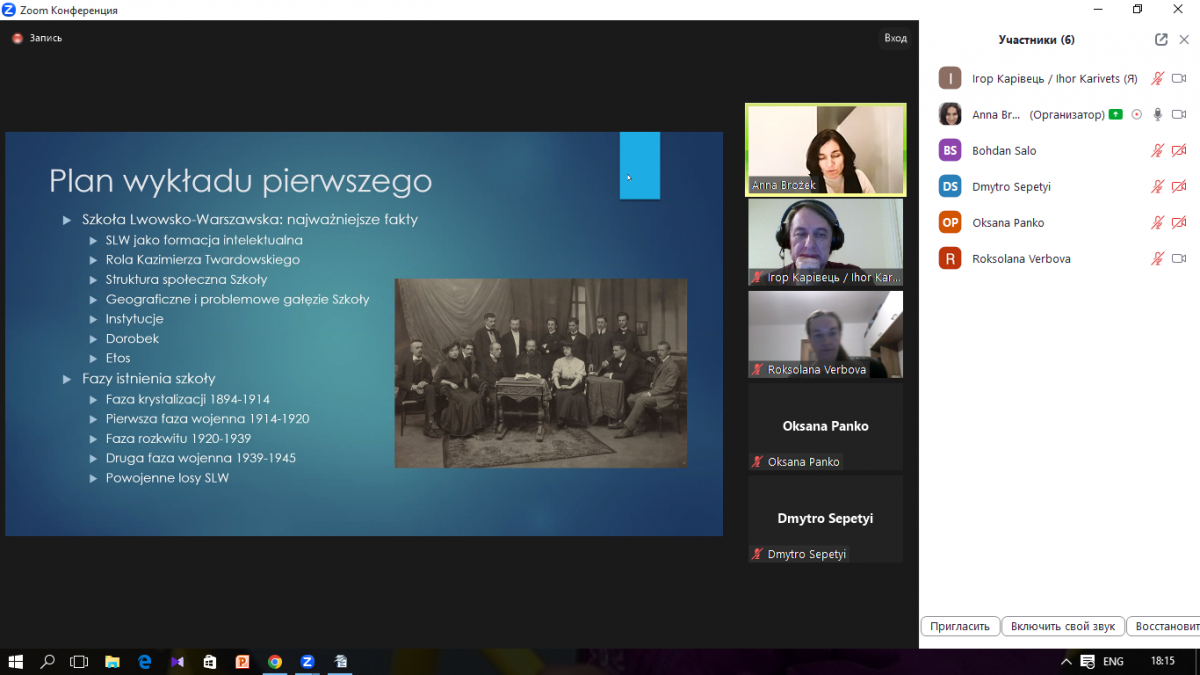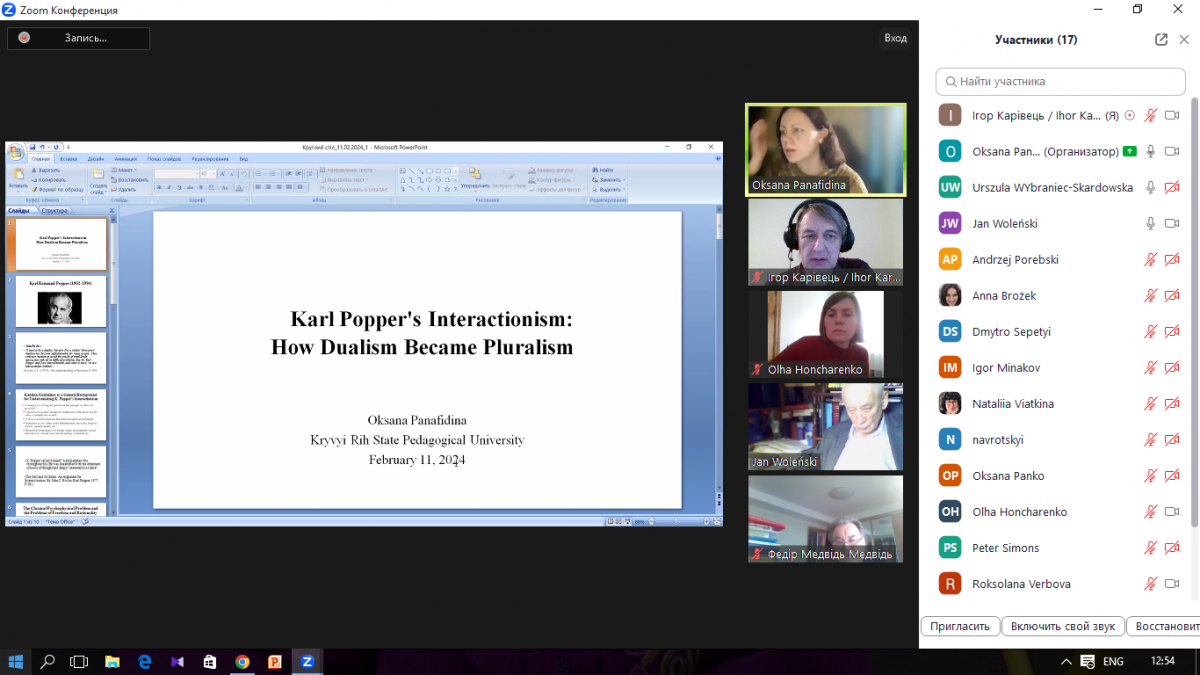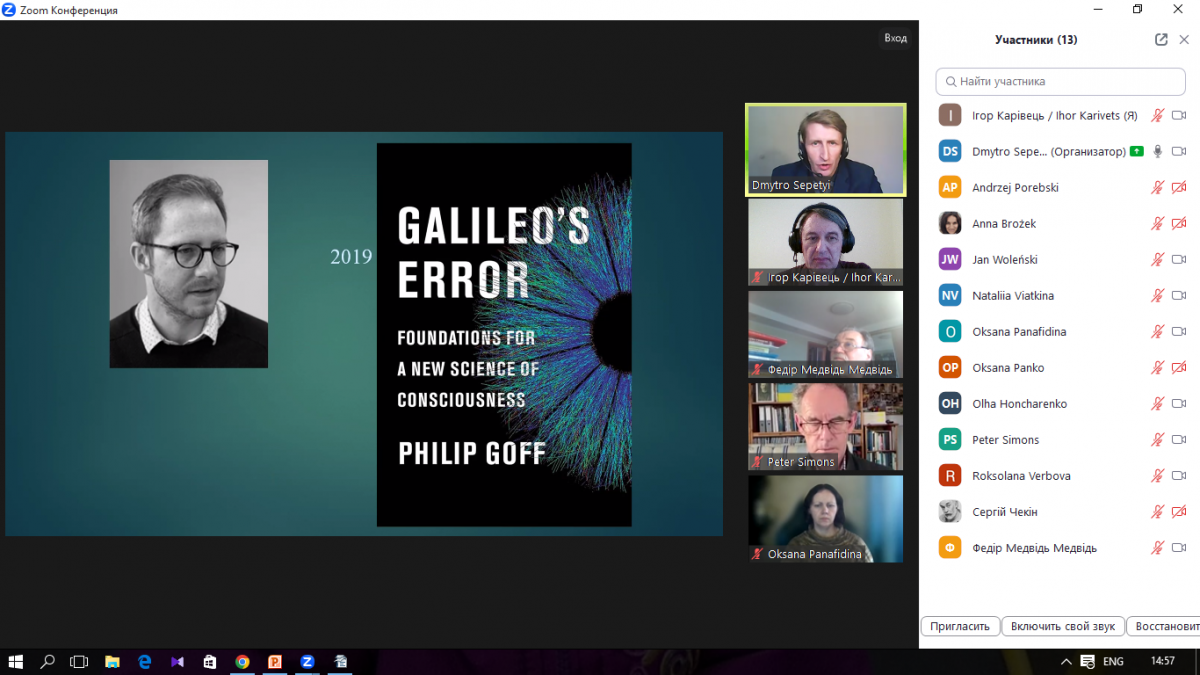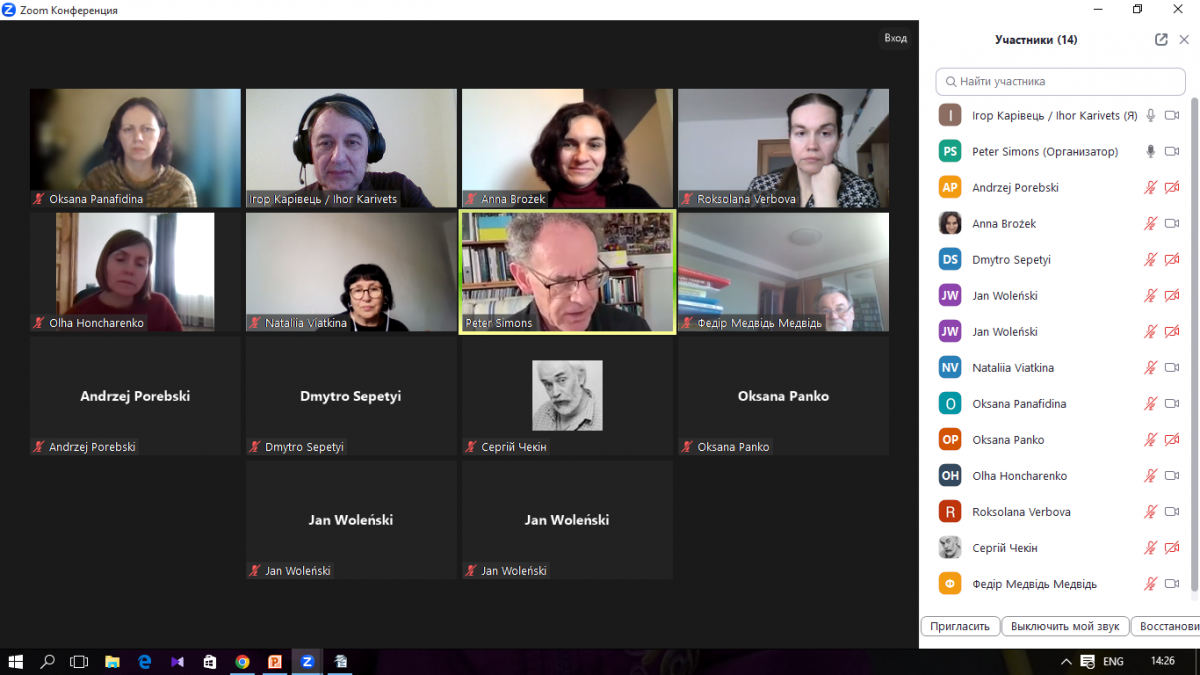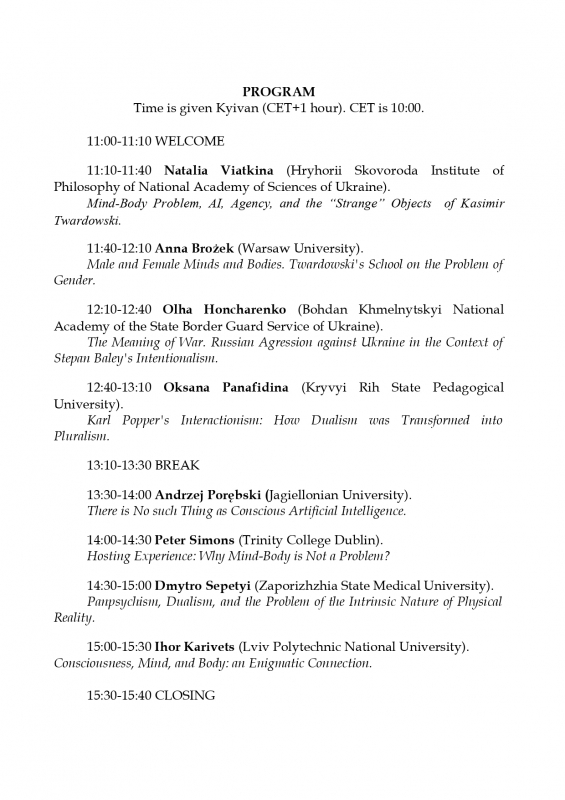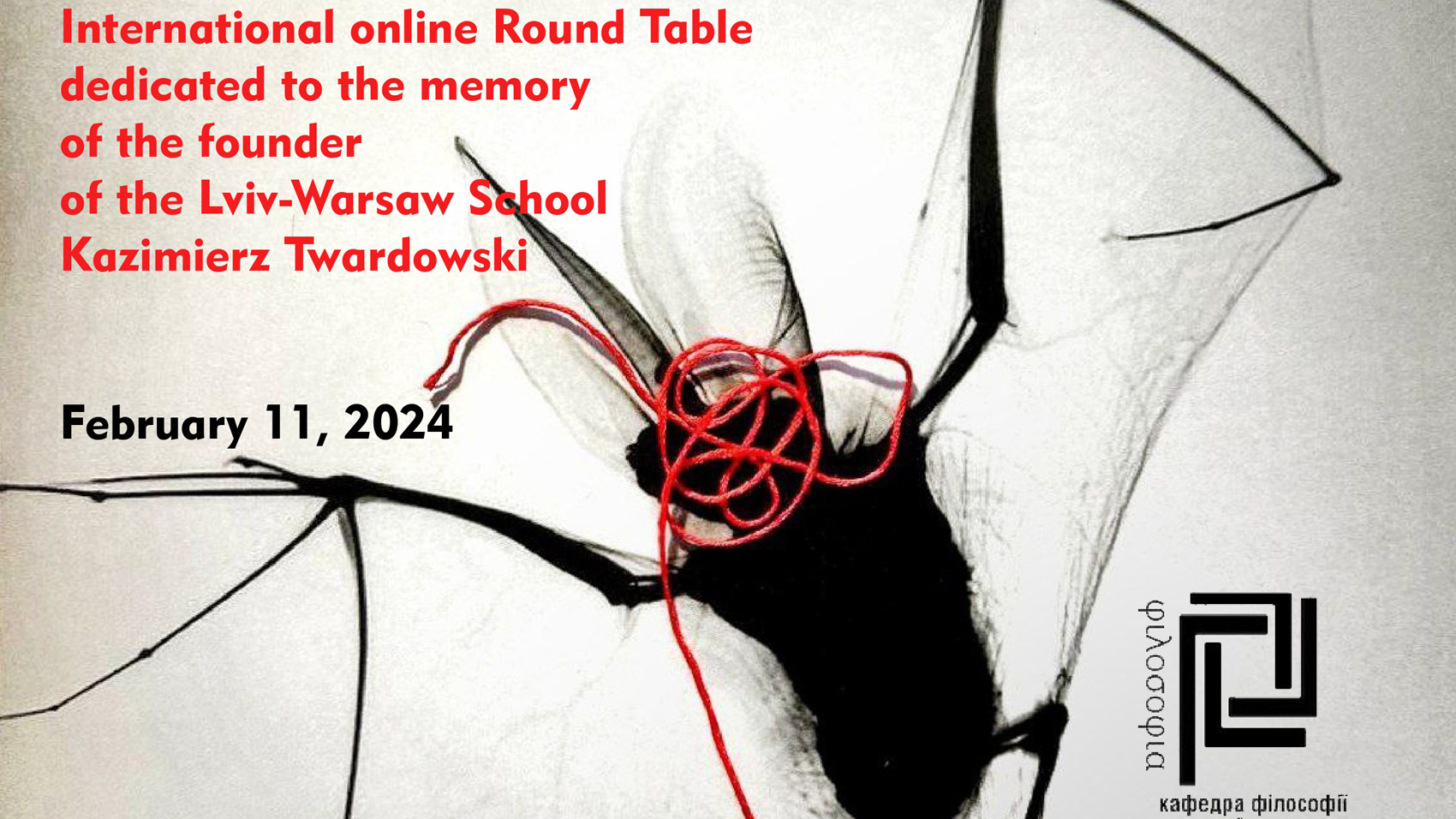The traditional International Round Table «The Mind-Body Problem: History – the Lviv-Warsaw School – Contemporaneity» was held on February 11, 2024. It was dedicated to the memory of the founder of the Lviv-Warsaw School – Kazimierz Twardowski. The organizers of the scientific meeting were the Department of Philosophy, Lviv Polytechnic National University, Kazimierz Twardowski Philosophical Society of Lviv, and the Lviv – Warsaw School Research Center, the University of Warsaw (Poland)
This year’s international round table dealt with a problem, the solution of which depends on the answer to the question about the essence of man. This problem is called psychophysical, and in the English-speaking academic world – the mind-body problem. Scientists from Ukraine, Poland and Ireland made presentations.
Professor Nataliia Viatkina from the Hryhoriy Skovoroda Institute of Philosophy, the National Academy of Sciences of Ukraine, reported on the topic «The Mind-Body Problem, artificial intelligence and Kazimierz Twardowski’s «strange objects», noting that the human psyche, human mind, and consciousness belong to those objects of scientific research, which are not standard, so they are difficult to analyze by scientific methods.
Professor Anna Brozek from the University of Warsaw spoke on the topic «Female and male bodies and minds. The gender issue by the school of Kazimierz Twardowski». The speaker noted that Twardowski’s school is distinguished by gender equality, there are enough female philosophers among its members, and the first woman who defended her thesis under Twardowski supervision in 1906 was Irena Panenkova (1879–1969).
Dr. Philos. Olha Honcharenko, President of Kazimierz Twardowski Lviv-Warsaw School, gave a speech on the topic «The meaning of war. Russia’s armed aggression against Ukraine in the context of Stepan Baley’s intentionalism», which concerned the psychological aspects of the study of the meaning of war by one of the Ukrainian representatives of the Lviv-Warsaw school, known psychologist Stepan Baley. Baley used the word «sense» from the German «sinn» and explained it as a «reasonable purpose». The search for the sense of war meant for Baley the search for the intentional content of war. The philosopher understood that war can be given different meanings. He was worried about whether Ukrainians would be able to give a new meaning to the First World War and whether they would be able to learn a lesson from it for the future.
